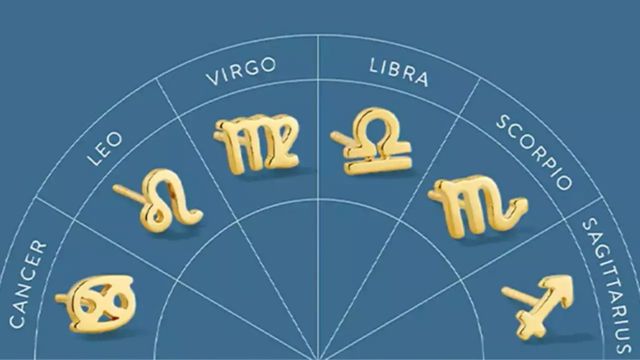Being useful in a world where people are getting more and more busy is highly valued. For many years, I’ve studied the habits of people who get things done. Some are shocking, while others are not as much. But the most successful people in the world do all of them.
Here are 13 little habits that the world’s most creative people always do:
They act before they feel good about it
They know that doing something will make them feel better. They don’t wait because they know that inspiration usually comes after they do something, not before. According to a study from the Institute for Career Studies, they jump right into tasks because they know that they will make them feel better once they start.
They don’t do things just because they have to.
They always ask, “Given my long-term goals, what is the most important thing I should do right now?” Being aware of emotional biases, focusing on one goal at a time, minimizing distractions, being self-motivated, and being careful are all psychological ways that productive people set priorities.
Why things are done is more important to them than how they are done.
They’re more about making sure the process works well and working better, not harder. A few times a day, they tell themselves of their goal.
They finish the things they need to do
People who leave a lot of open work behind are more likely to get tired. A study from 2018 says that people who don’t set priorities for their work may be less productive than those who do. To effectively prioritize your work, you should always be improving your ability to look at your tasks and change their order based on how important, urgent, and likely to have an effect they are.
They work out every day for at least 20 minutes
They don’t think of this as a different “job.” Instead, it’s to make their work better so they can get more done. Studies show over and over that walking every day is very good for your health. Many studies show that even taking a few modest steps every day can have big health benefits. People who walked at least 7,000 steps every day had a 50–70% lower chance of dying before their time, according to a study that came out in 2022 in the Journal of the American Medical Association.
They know that worrying, dwelling on problems, and being hard on themselves hurts their performance.
They have a good amount of “faith” in themselves and keep going even when they don’t think they know what they’re doing. Negative self-talk about oneself can hurt performance by lowering self-esteem, drive, and self-efficacy, which can make a person feel inadequate and worthless.
A study from 2009 in the Journal of Personality and Individual Differences, on the other hand, showed that some self-criticism can be helpful and help people get better. Self-criticism can help people figure out that they need to change the way they act by helping them keep an eye on themselves and fix their mistakes.
They never get stuck
Productive people do a lot of things to get rid of their boredom and fear. They know that being busy is better than being idle. When someone knows what’s most important to them, being busy will help them get things done; they’re never busy just to be busy.
They have a strong desire to make a difference.
The busiest people are trying to do something good for the world. They make other people’s lives better than their job.
Researchers have found that trust affects the link between having fun at work and having fun outside of work. This idea was backed by another study that found that interpersonal trust has a big effect on the link between fun activities at work and having fun.
Their daily plans are very well thought out.
Their attention to detail is like how a good swimmer plans his route. They put important tasks ahead of “urgent” tasks that are often distracting. They know what needs to be done and when.
According to the American Psychological Association’s (APA) 2017 article on boosting productivity, less interruptions are the key to productivity. However, most people who work full-time can’t make that happen. There are so many things that need to be done that it’s hard to focus on one thing for more than a few minutes. This includes work, family meals, kids’ schoolwork, personal health goals, and more.
They do the hardest thing first thing in the morning
They don’t have much time to think about it, so an early win gives them a boost that makes everything they do after that feel good. Very productive people usually start with the hardest task because it gives them the most mental energy early in the day and keeps them from putting things off. Also, taking on the biggest challenge first lowers their stress and gives them a sense of accomplishment that can motivate them to finish easier tasks later in the day.
Taking on the hardest task first, also known as “eating the frog,” makes them feel more in charge and less stressed about the problem that’s coming up later in the day.
They discover a way to enjoy dull jobs
This is possible because they slow down, let go of worries, and get into a flow state, which helps them. The University of Chicago studied the best levels of achievement and found that happiness is an inner state of being. It was found that people were most creative, active, and happy when they were in a flow state.
Flow is a state in which someone is so into an activity that they don’t care about anything else. They enjoy the experience so much that they will keep doing it even if it costs them a lot, just because they want to.
They do everything they can to stay focused.
The most important thing is getting work done quickly and within clear time frames. The phones are in a different room, and if needed, the Internet is turned off.
The prefrontal cortex is in charge of paying attention and making choices. Too many stimuli can make it lose its focus. Massachusetts General Hospital says this can make people less productive, make it harder to get things done quickly and make them feel more stressed.
They don’t push themselves to get more done
They only care about enjoying doing one thing at a time. People who are already busy don’t put too much pressure on themselves to be more productive because they know that constant pressure can lead to burnout, which makes them less productive. Self-awareness and intrinsic motivation are also important for a more balanced approach that leads to long-term success and better mental health. Focusing on the “why” behind chores instead of just the “how fast” can help you reach your goals more effectively.


 by
by 




